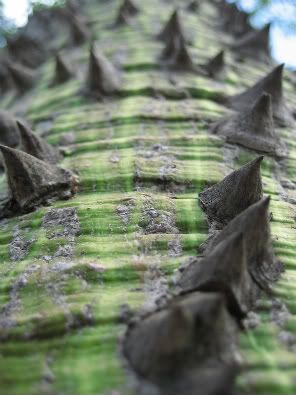Bismillahi Wal hamdullillah Was Salaatu Was Salaamu ‘alaa Rasoolillahi
Ammaa Ba’d:
The following are some text related to the women of Jannah, and I intend by the women of Jannah here, the women from the women of the Dunya who were successful in making it to Jannah. Since in the texts of the Book and the Sunnah, we understand that the women of Jannah are of two main types, The women of the Dunya who were rewarded with Jannah (From Mankind and the Jinn), and: The Hoorul Een who have never been in the dunya but were created in Jannah for Jannah.
It should also be Known that from the worldly women that are rewarded with Jannah there are those who are superior to the Hoorul Een.
The messenger – Sallallahu Alaihi Was Salam said: “The best women of Jannah are four Khadeejah Binti Khuwailid, Faatimah Binti Muhammad, Maryam Binti ‘Imraan and Aasiyah Binti Mazaahim the wife of Pharoah.. )
(Collected by Imaam Haakim in his ‘Mustadrak’ (3836))
Concerning the Hadeeth Imaamul Manaawi states:
“..he mentioned ‘.. Women of Ahlul Jannah’ and he didnt (just) say ‘Women‘ to prove that they are more virtuous than (even) the Hoor (Al Een), otherwise it would be believed that he (only) intended the women of this world..”
Indeed from the scholars are those who held that the women of Jannah who were in this world and earned Jannah are all better than the Hoorul Een, since one was created in Jannah, while the other was rewarded with Jannah through their Imaan and righteous deeds and thus are superior.
So there are a number of characteristics mentioned concerning the women of Jannah who were women from the children of Aadam that were rewarded with Jannah after being in the dunyah.
From that:
Allah will purify them!
Allah the most high says:
“And give glad tidings to those who believe and do righteous good deeds that for them will be gardens beneath which rivers flow. Everytime they will be provided with a fruit therefrom they will say this is what we were provided with before and they will be given things in resemblance and they will have therein purified spouses and they will abide therein forever”
(Suratul Baqarah Vs 25)
Concerning the portion of the verse “..they will have therein purified spouses” Ibn Abbaas and Ibn Mas’ood said: “They will not have menses, neither will that defecate, urinate, break wind or have mucus.
Allah will ‘recreate’ them!
Concerning the statement of Allah the most high:
“Verily we will create them of special creation, and will make them virgins, Loving and playful (with their husbands) of equal age“
(Suratul Waaqi’ah 35-37)
concerning the first verse mentioned here Qataadah and sa’eed ibn Jubair mentioned: ” i.e We Have created them anew”
Ibn Abbaas mentioned: “He (Allah) intends here, Adamiyaat (that is, women from the children of Aadam, since some held that the intent with the verse are the Hoorul ‘Aen’)
That which brings clarity to this is the hadeeth of the messenger -Sallallahu Alaihi was Salam “Elderly women will not enter Jannah” Upon hearing this an elderly woman began to cry so the messenger of Allah said: “Inform her that on that day she will not be elderly rather she will be youthful For indeed Allah has said: “Verily we will create them of special creation..”
(Collected by At Tirmidhi and declared ‘Hasan’ by Shaikh Al Albaani in ‘Ghaayatul Maraam p215)
Concerning the statement: ‘Uruban..(Loving and playful (with their husbands)
Ibn Abbaas mentioned: “Passionate and emotional with their husbands and their husbands are passionate and emotional with them“
(Tafseer Ibn Katheer 7/533 – Darut Taiybah print)
They will be large Chested maidens
Concerning the statement of Allah
“Gardens and grapeyards, and young full breasted maidens of equal age..”
(Suratul Naba Vs 32-33)
Ibn Katheer mentions:” It was mentioned by Ibn Abbaas, Mujaahid and others concerning the statement of Allah: “Kawaa’iba Atraabaa ‘That is they will be Full breasted young maidens, due to the fact that they will be virgins, Loving and playful (with their husbands) of equal age (since the people of Jannah will be of one age) as has been clarified in (the explanation of) Suratul Waaqi’ah
(Tafseer ibn Katheer 8/308 (Dar Tayyibah Print))
They will have the most beautiful clear skin!
Upon the authority of Abu Huriaira who said the prophet – Sallallahu ‘Alaihi Was Salam Said (describing the beauty of women in Jannah): “..Her marrow is visable beneath her skin, and there are no bachelors in Paradise“
(Collected by Bukhaari and Muslim)
Concerning this description of her skin in the hadeeth Imaamul Iraaqi mentions in tarhu Tathreeb “..Her marrow is visable beneath her skin..” That is, from the extremely pure nature of her skin, one can see her marrow just as one can see the fine threads inside a very pure pearl..”
(Tarhu Tathreeb 9/226)
However this manifests, it will be beautiful!
They will continue to become more beautiful every friday….forever!
Upon the authority of Anas ibn Maalik who said that the Messenger of Allah – Sallallahu alaihi wa Salam said: “Indeed in Jannah there is a market that will be attended (by the inhabitants of Jannah) every Jumu’ah, wherein a breeze will blow upon them from the north, it will blow in their faces and upon their garments and they will increase in good looks and beauty (due to it). They will return to their families who would also have become more good looking and beautiful. Their families will say to them ‘By Allah! you have become more good looking and beautiful since you have left us! and they will say back to them: ‘And you By Allah have become more good looking and beautiful since we have left out!’
one version mentions at its end ’..and that is every Jumu’ah’
(Collected by Muslim in his ‘Saheeh’)
Their beautiful fragrance
Upon the authority of Anas Ibn Maalik – Radhiyallahu ‘anhu – who said that the Messenger of Allah – Sallallahu alaihi Was Salam – Said: “..If a woman from the women of Jannah were to appear in this world, that which is between (the heavens and the earth) would be filled with her (beautiful) fragrance.
Their Brilliance!
Upon the authority of Anas Ibn Maalik – Radhiyallahu ‘anhu – who said that the Messenger of Allah – Sallallahu alaihi Was Salam – Said: “..If a woman from the women of Jannah were to appear in this world, that which is between (the heavens and the earth) would be filled with her (beautiful) fragrance. And they they would illuminate that which is between the heavens and the earth..“
The brilliant beauty of their garments alone
The previous hadeeth continues..
“.. The scarf that is on her head is better than the world and that which is upon it!”
(Collected By Tirmidhi (1651) and declared ‘Saheeh’ by Shaikh Al Albaani in Saheeh Sunan At Tirmidhi)
And as some of the salaf said: “If this is her scarf (or shawl) then what about her!. Think of All the tremendous beauty that is present in our present world and know that one of her accessories alone is better than it all!
This is just a portion of that which has occured concerning what is promised to her, that is not to mention all the other delights of Jannah that she will partake in alongside the men who enter.
Wallahu A’lam
Abu Hakeem Bilal







